Полёт фантазии, фантазии в полёте - [63]
Стихотворение используется в книге автора, написанной на английском, «Russian-English Romance. Homage to John Fowles» (Москва, изд-во «Книжный дом Университет», 2017), два рассказа из которой приводятся ниже.
Human Soul Travelers’ Club
«Free! Free at last!» — Julia’s heart was beating with joy though she realised it was not quite the kind of emotion she should have experienced immediately after seeing her beloved husband’s body put into the grave.
When the funeral ceremony was over Julia threw away the mask of mourning and her face acquired the radiant expression of some one entering a bright new world full of happy opportunities. Everything around her pleased her, as she walked home through Westhill park on that bright October morning. The air was transparent, red and golden leaves covered the green grass, pretty children played with dogs, all passers-by seemed to her beautiful.
Julia set on a bench and as her fingers touched the inscription «To our beloved David», she thought dead it would be wonderful to order such a bench in memory of her husband. She looked at the golden leaves lit up by the sun, inhaled the tasty autumn air and sighed with relief.
The feeling of relief did not come from the fact that John Evans, whom she had been married to for twenty-five years, was an awful man or a bad husband. No, on the contrary: John loved her very much, but like all men when they become husbands, had never given much thought to her emotions, kept treating her like an indispensable part of his life. Home, husband, children — how tired she had been! Besides, there was one thing which had really spoiled her married life: she adored travelling and John hated it. It had always been torture for him to go further than Brighton or to stay at a hotel. He was a leave-me-alone-and-let-me-read-my-newspaper man. On the second day of their marriage Julia realised that instead of a movable feast she had acquired an immovable bore.
There was one more thing which made her suffer, and that was her talent, which she could never realise while living with John, the talent to discern and guide talented people. By some inborn instinct she could easily tell genuine from false, identify a talented man in a mass of ordinary people.
Alas! Her husband John was not talented. Once many years before she had met a man with real talent, a young nobody in whom she could clearly see a promising writer, but that’s another story…
Julia looked at golden leaves made transparent by the sun and smiled: «Tomorrow I will start an absolutely new life and it will be as fascinating as the glossy pages of coloureful travel brochures. At long last I will fulfil my passionate desire — I will travel as much as I want; I will go to Russia in winter to see its white snows, I will visit India, Brasil, Australia and the dream of my dreams, China».
Once in a museum she had seen a Chinese character made of white nephrite — the ancient symbol of prosperity, happiness and wisdom. Since then everything Chinese enchanted her — silk, watercolours, porcelain. She often went to Chinese shops in London, but London China has as little to do with real China as the jungle tiger with the painted tiger.
Once Julia had even dared to ask her husband to organise a tour to Peking. John smiled, took her in his arms, kissed her gently and said: «What’s the use of going there? Life is the same everywhere — people work and sleep, quarrel and love. The secret of happiness is inside us, and not outside, as one of your ancient Chinese said. So what’s the use of changing places?»
Of course it would be unfair to say that her John had been just a bore. He was a prosperous businessman and a perfect family man: their children adored him. «What an excellent grandfather he could have become!» — thought Julia. Alas! Fate always had her own ways and Julia was realistic. Being realistic and taking things easy was her life motto, and it helped her to achieve that secure and independent position which she could boast even after her husband’s death.
The next morning Julia started her search for travel opportunities. She visited three travel agencies and was dazzled by the variety of choice: all the tours were so exciting: «Have a good time in Hawaii, enjoy holidays in Australia, don’t miss a chance to see Russia in winter» — urged the advertisement. But Julia’s enthusiasm faded the moment she looked at the prices. «Pretty costly, life is getting dearer» — her common sense told her, and as Julia’s common sense was impeccable she could always safely rely on it. «Just think», — it said to her — «the price they are charging is not for the beautiful sights, but for the comforts of modern civilisation: hotels, meals, services. Do you really need all that? Wouldn’t it be better to look for cheaper tours?»
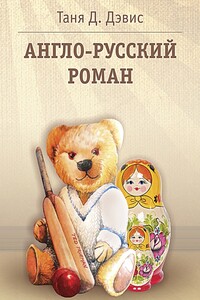
Англо-русский роман конечно же о любви, о любви между представителями разных культур в условиях глобализованного мира. Во что выльется случайная встреча главных героев: английского юриста Дэвида и преподавателя московского вуза Тани? Если рассматривать жизнь как квест, то такие встречи — это подсказки, куда и с кем идти по жизни дальше. Кто понял, дойдёт до счастливого финала, кто не заметил, удача отвернётся. Как же узнать, что подарок судьбы, а что искушение?
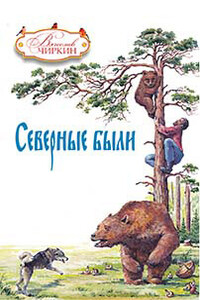
О красоте земли родной и чудесах ее, о непростых судьбах земляков своих повествует Вячеслав Чиркин. В его «Былях» – дыхание Севера, столь любимого им.
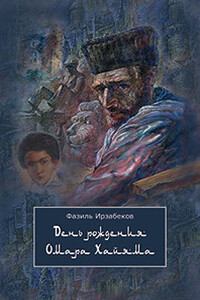
Эта повесть, написанная почти тридцать лет назад, в силу ряда причин увидела свет только сейчас. В её основе впечатления детства, вызванные бурными событиями середины XX века, когда рушились идеалы, казавшиеся незыблемыми, и рождались новые надежды.События не выдуманы, какими бы невероятными они ни показались читателю. Автор, мастерски владея словом, соткал свой ширванский ковёр с его причудливой вязью. Читатель может по достоинству это оценить и получить истинное удовольствие от чтения.
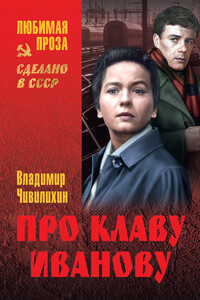
В книгу замечательного советского прозаика и публициста Владимира Алексеевича Чивилихина (1928–1984) вошли три повести, давно полюбившиеся нашему читателю. Первые две из них удостоены в 1966 году премии Ленинского комсомола. В повести «Про Клаву Иванову» главная героиня и Петр Спирин работают в одном железнодорожном депо. Их связывают странные отношения. Клава, нежно и преданно любящая легкомысленного Петра, однажды все-таки решает с ним расстаться… Одноименный фильм был снят в 1969 году режиссером Леонидом Марягиным, в главных ролях: Наталья Рычагова, Геннадий Сайфулин, Борис Кудрявцев.
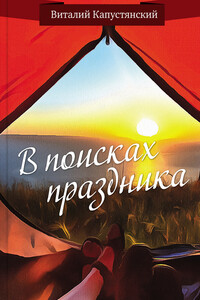
Мой рюкзак был почти собран. Беспокойно поглядывая на часы, я ждал Андрея. От него зависело мясное обеспечение в виде банок с тушенкой, часть которых принадлежала мне. Я думал о том, как встретит нас Алушта и как сумеем мы вписаться в столь изысканный ландшафт. Утопая взглядом в темно-синей ночи, я стоял на балконе, словно на капитанском мостике, и, мечтая, уносился к морским берегам, и всякий раз, когда туманные очертания в моей голове принимали какие-нибудь формы, у меня захватывало дух от предвкушения неизвестности и чего-то волнующе далекого.
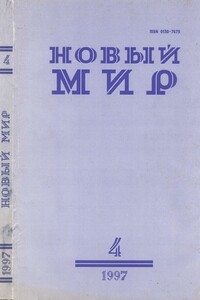
В книге рассказывается история главного героя, который сталкивается с различными проблемами и препятствиями на протяжении всего своего путешествия. По пути он встречает множество второстепенных персонажей, которые играют важные роли в истории. Благодаря опыту главного героя книга исследует такие темы, как любовь, потеря, надежда и стойкость. По мере того, как главный герой преодолевает свои трудности, он усваивает ценные уроки жизни и растет как личность.
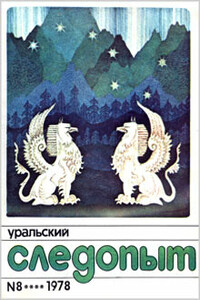
Новиков Анатолий Иванович родился в 1943 г. в городе Норильске. Рано начал трудовой путь. Работал фрезеровщиком па заводах Саратова и Ленинграда, техником-путейцем в Вологде, радиотехником в свердловском аэропорту. Отслужил в армии, закончил университет, теперь — журналист. «Третий номер» — первая журнальная публикация.